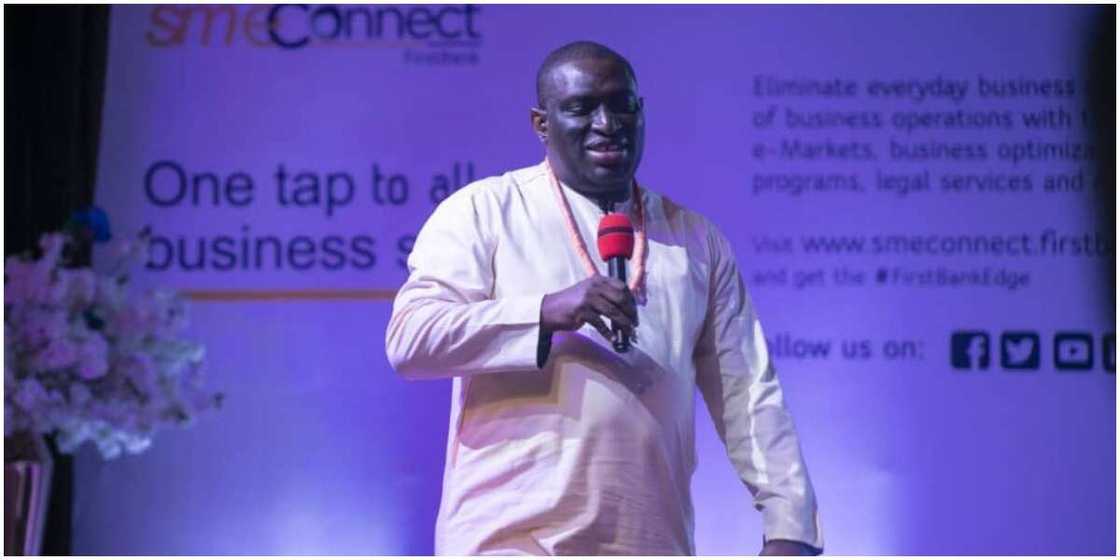Nigerian investor, Victor Asemota, weighs into financing gap between poor and rich
- Victor Asemota says rich people are bank's profit pool, reason why they focus less on retail banking
- The Nigerian investor said rich people are living on poor people's deposit, as they don't use their money to buy things
- The tech expert said rich people own banks or have a stake in them because of the advantages of having a bank as leverage
PAY ATTENTION: Legit.ng is on a mission to support vulnerable children of Calabar – join the initiative
Serial investor and tech enthusiast, Victor Asemota, explained why Nigerian banks take money from the poor to the rich. For years, there has been debate as to why the finance gap between the poor and rich continues to expand.
Asemota said wealthy Nigerians do more banking than the rich, reason why the lenders use the deposit to finance the business of the upper class. He made this known on a thread posted on his Twitter timeline.
He said deposit money banks are more profitable dealing with the rich class, making high networth individuals the best profit pool when the government becomes broke to work with creditors.
Asemota said that's why retail lending is not prioritised by commercial banks, most of which place more attention on corporate banking. He based his knowledge on the experience gathered while helping a rich man manage his debt.
He buttressed his point by stating that's why most wealthy Africans own a bank or have an interest in a financial institution.: The tech expert explained that's why affluent individuals can make large purchases without spending their liquid funds.

Source: Getty Images
"Someone was arguing here that rich people buy yachts with liquid funds. I was laughing hard and had to give a measured reply. Banks prop up rich people because rich people get banking more than poor people. I have managed a rich man"s debt before and I know what I am saying.
"Banks also make a killing from rich people"s companies and that is why you find that most Nigerian banks don't bother about retail lending and only just take deposits from the poor to lend to the rich. Their biggest profit pool now that government is broke is that spread.
"There is a reason why most rich Africans own banks or have interests in them. That is how they get leverage. Leverage. Learn that word if you want to be rich and remain rich. Leverage creates wealth for banks and the rich through fractional reserve lending." Asemota said
Not far from the truth
Nigerian banks have often direct most of their capital to the upper class, denying the lower class access to credit to fund a business. This disparity had led to the Central Bank of Nigeria initiating the loan-to-deposit ratio in 2019.
Currently, the lenders are compelled to have a 65% loan-to-deposit ratio every quarter and improve their lending to the small and medium businesses operating in the economy.
Failure to do so will cost a bank part of its capital base. The more money a creditor borrows out to the small and medium enterprises, as well as the real sector, the more cash the financial regulator will free up.
This policy by CBN Governor, Godwin Emefiele, has increased the amount of credit in the economy even though it's hurting the banks as non-performing loans is rising. The monetary authority took the decision to reduce the finance gap between the rich and the poor.
Meanwhile, Legit.ng had earlier reported that a Nigerian, Michael Okaredje, is daring the wrath of Uber and Bolt, as the founder of Pickmeup aims to compete against the foreign ride-hailing firms.
Source: Legit.ng




